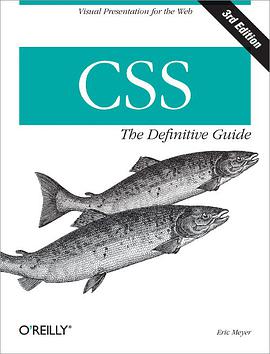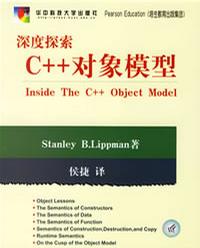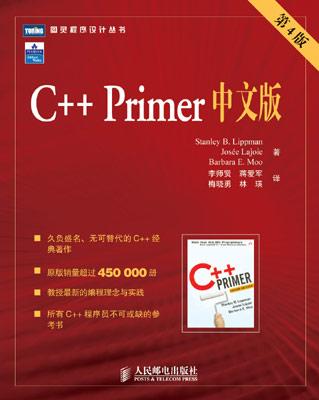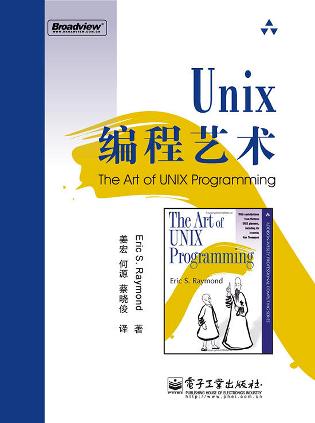CSS
内容简介
"CSS: The Definitive Guide, 3rd Edition," provides you with a comprehensive guide to CSS implementation, along with a thorough review of all aspects of CSS 2.1. Updated to cover Internet Explorer 7, Microsoft's vastly improved browser, this new edition includes content on positioning, lists and generated content, table layout, user interface, paged media, and more. Simply put, Cascading Style Sheets (CSS) is a way to separate a document's structure from its presentation. The benefits of this can be quite profound: CSS allows a much richer document appearance than HTML and also saves time -- you can create or change the appearance of an entire document in just one place; and its compact file size makes web pages load quickly. "CSS: The Definitive Guide, 3rd Edition," provides you with a comprehensive guide to CSS implementation, along with a thorough review of all aspects of CSS 2.1. Updated to cover Internet Explorer 7, Microsoft's vastly improved browser, this new edition includes content on positioning, lists and generated content, table layout, user interface, paged media, and more. Author Eric Meyer tackles the subject with passion, exploring in detail each individual CSS property and how it interacts with other properties. You'll not only learn how to avoid common mistakes in interpretation, you also will benefit from the depth and breadth of his experience and his clear and honest style. This is the complete sourcebook on CSS. The 3rd edition contains: Updates to reflect changes in the latest draft version of CSS 2.1 Browser notes updated to reflect changes between IE6 and IE7 Advanced selectors supported in IE7 and other major browsers included A new round of technical edits by a fresh set of editors Clarifications and corrected errata, including updated URLs of referenced online resources
......(更多)
作者简介
Eric A. Meyer has been working with the Web since late 1993 and is an internationally recognized expert on the subjects of HTML, CSS, and web standards. A widely read author, he is also the founder of Complex Spiral Consulting (www.complexspiral.com), which counts among its clients America Online; Apple Computer, Inc.; Wells Fargo Bank; and Macromedia, which described Eric as "a critical partner in our efforts to transform Macromedia Dreamweaver MX 2004 into a revolutionary tool for CSS-based design."
Beginning in early 1994, Eric was the visual designer and campus web coordinator for the Case Western Reserve University web site, where he also authored a widely acclaimed series of three HTML tutorials and was project coordinator for the online version of the Encyclopedia of Cleveland History and the Dictionary of Cleveland Biography, the first encyclopedia of urban history published fully and freely on the Web.
Author of Eric Meyer on CSS and More Eric Meyer on CSS (New Riders), Cascading Style Sheets: The Definitive Guide (O'Reilly), and CSS2.0 Programmer's Reference (Osborne/McGraw-Hill), as well as numerous articles for the O'Reilly Network, Web Techniques, and Web Review, Eric also created the CSS Browser Compatibility Charts and coordinated the authoring and creation of the W3C's official CSS Test Suite. He has lectured to a wide variety of organizations, including Los Alamos National Laboratory, the New York Public Library, Cornell University, and the University of Northern Iowa. Eric has also delivered addresses and technical presentations at numerous conferences, among them An Event Apart (which he cofounded), the IW3C2 WWW series, Web Design World, CMP, SXSW, the User Interface conference series, and The Other Dreamweaver Conference.
In his personal time, Eric acts as List Chaperone of the highly active css-discuss mailing list (www.css-discuss.org), which he cofounded with John Allsopp of Western Civilisation, and which is now supported by evolt.org. Eric lives in Cleveland, Ohio, which is a much nicer city than you've been led to believe. For nine years he was the host of "Your Father's Oldsmobile," a Big Band-era radio show heard weekly on WRUW 91.1 FM in Cleveland.
You can find more detailed information on Eric's personal web page at .
......(更多)
目录
Copyright
Dedication
Preface
Chapter 1. CSS and Documents
Section 1.1. The Web's Fall from Grace
Section 1.2. CSS to the Rescue
Section 1.3. Elements
Section 1.4. Bringing CSS and XHTML Together
Section 1.5. Summary
Chapter 2. Selectors
Section 2.1. Basic Rules
Section 2.2. Grouping
Section 2.3. Class and ID Selectors
Section 2.4. Attribute Selectors
Section 2.5. Using Document Structure
Section 2.6. Pseudo-Classes and Pseudo-Elements
Section 2.7. Summary
Chapter 3. Structure and the Cascade
Section 3.1. Specificity
Section 3.2. Inheritance
Section 3.3. The Cascade
Section 3.4. Summary
Chapter 4. Values and Units
Section 4.1. Numbers
Section 4.2. Percentages
Section 4.3. Color
Section 4.4. Length Units
Section 4.5. URLs
Section 4.6. CSS2 Units
Section 4.7. Summary
Chapter 5. Fonts
Section 5.1. Font Families
Section 5.2. Font Weights
Section 5.3. Font Size
Section 5.4. Styles and Variants
Section 5.5. Stretching and Adjusting Fonts
Section 5.6. The font Property
Section 5.7. Font Matching
Section 5.8. Summary
Chapter 6. Text Properties
Section 6.1. Indentation and Horizontal Alignment
Section 6.2. Vertical Alignment
Section 6.3. Word Spacing and Letter Spacing
Section 6.4. Text Transformation
Section 6.5. Text Decoration
Section 6.6. Text Shadows
Section 6.7. Summary
Chapter 7. Basic Visual Formatting
Section 7.1. Basic Boxes
Section 7.2. Block-Level Elements
Section 7.3. Inline Elements
Section 7.4. Altering Element Display
Section 7.5. Summary
Chapter 8. Padding, Borders, and Margins
Section 8.1. Basic Element Boxes
Section 8.2. Margins
Section 8.3. Borders
Section 8.4. Padding
Section 8.5. Summary
Chapter 9. Colors and Backgrounds
Section 9.1. Colors
Section 9.2. Foreground Colors
Section 9.3. Backgrounds
Section 9.4. Summary
Chapter 10. Floating and Positioning
Section 10.1. Floating
Section 10.2. Positioning
Section 10.3. Summary
Chapter 11. Table Layout
Section 11.1. Table Formatting
Section 11.2. Table Cell Borders
Section 11.3. Table Sizing
Section 11.4. Summary
Chapter 12. Lists and Generated Content
Section 12.1. Lists
Section 12.2. Generated Content
Section 12.3. Summary
Chapter 13. User Interface Styles
Section 13.1. System Fonts and Colors
Section 13.2. Cursors
Section 13.3. Outlines
Section 13.4. Summary
Chapter 14. Non-Screen Media
Section 14.1. Designating Medium-Specific Style Sheets
Section 14.2. Paged Media
Section 14.3. Aural Styles
Section 14.4. Summary
Appendix A. Property Reference
Section A.1. Visual Media
Section A.2. Tables
Section A.3. Paged Media
Section A.4. Dropped from CSS2.1
Section A.5. Visual Styles
Section A.6. Paged Media
Section A.7. Aural Styles
Appendix B. Selector, Pseudo-Class, and Pseudo-Element Reference
Section B.1. Selectors
Section B.2. Pseudo-Classes and Pseudo-Elements
Appendix C. Sample HTML 4 Style Sheet
About the Author
Colophon
Index
......(更多)
读书文摘
左浮动元素的右外边界不会在其右边右浮动元素的左外边界的右边。一个右浮动元素的左外边界不会在其左边任何左浮动元素的右外边界的左边
......(更多)






